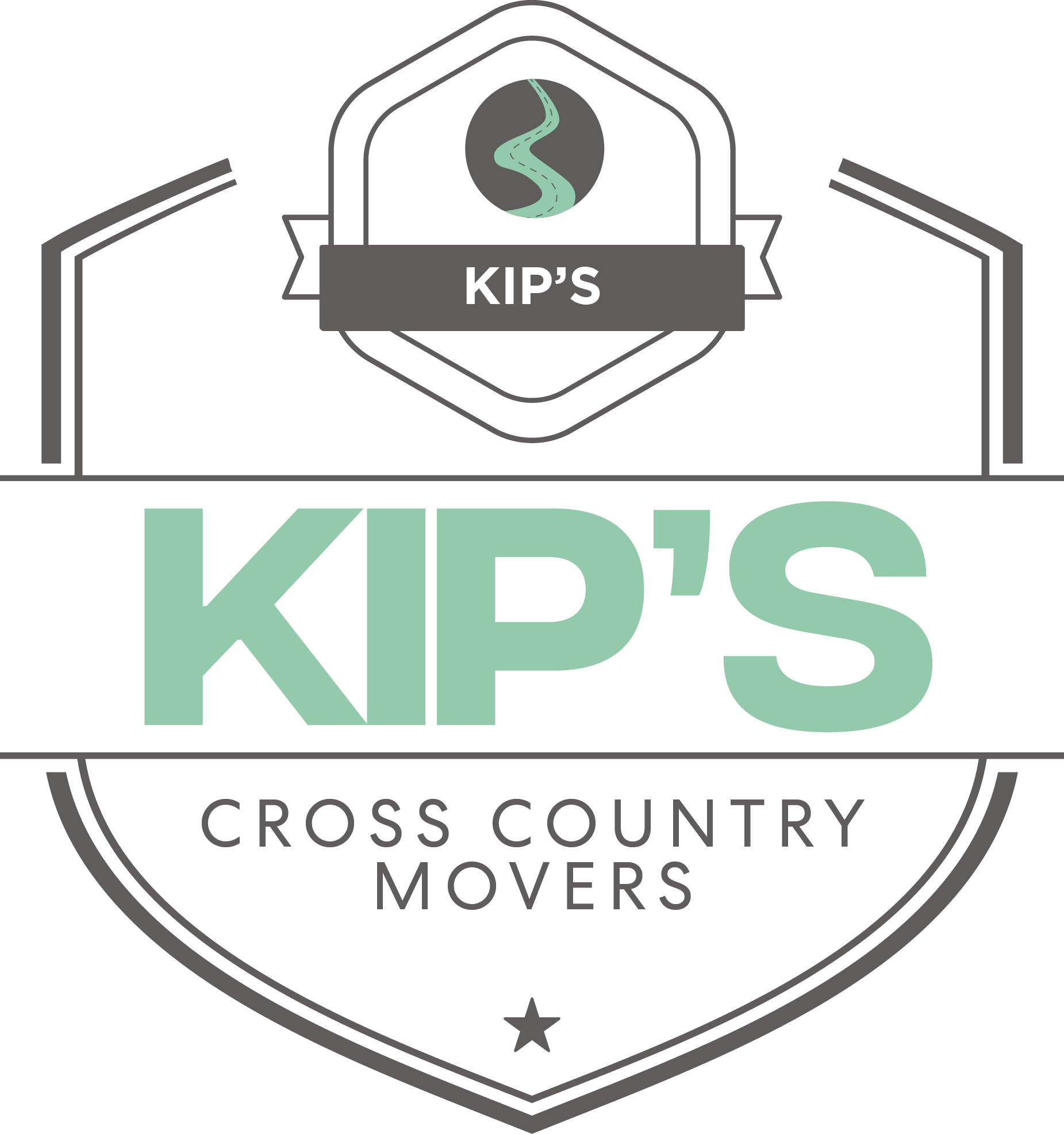If you’re looking to plan a cross country move, there lots of ways to get it done. The circumstances of your move will play a big part in how you go about your relocation. As you plan, you’ll want to consider how much time and labor you’re willing to invest directly in the task. It’s also important to keep in mind the hidden costs that come with any move. Preparation is key, but it’s best to plan for the worst in terms of time, labor, and money. Here are a few options to consider before you start packing up your belongings.
1. Purge Your Possessions
Pros:
- Less time spent packing, transporting, and unpacking
- Can move everything that’s left in a personal vehicle
- Fresh start in your new place
Cons:
- If you want to sell of your items, you’ll need adequate time to invest in doing so
- You’ll have to buy things to furnish your new place
- It may be difficult to go this route if your belongings have a lot of sentimental value
The popularity of the minimalist lifestyle has grown exponentially in the past few years. People who embrace this way of living often speak of how liberating it is to give up unnecessary worldly possessions. Stripping down household goods to the essentials comes with lots of perks: fewer worries, contentment, and focus on quality of life, just to name a few.
When it comes to moving, you may decide that now is an excellent time to embrace the minimalist lifestyle. If you sell most of your possessions, you won’t have to worry about how to tote them across the country. Hang on to just the essentials you can fit in your vehicle. This method of cross-country moving reduces the time and energy you’ll spend packing, transporting, and unpacking your possessions. Here are the other pros and cons:
2. Renting a Truck
Pros:
- More affordable alternative than hiring movers
- Practical for small moves
- Variety of sizes available to rent
- Move on your terms
Cons:
- Challenges of driving a large box truck across the country
- No professionals to oversee the packing process
- Must consider how to transport your vehicle
- Expense of gas (poor gas mileage)
- Personal liability
If you’re a do-it-yourself kind of person, renting a truck through a logistics company like U-Haul or Penske might be an enticing prospect. For smaller moves, these trucks often offer all the space you need to carry all your possessions in a single trip. Plus, you’ll know exactly what you’re getting because you’ve packed everything inside yourself. This method is typically cheaper than hiring a professional moving company to oversee your relocation.
But the advantages that come from hiring your own truck can also be a double-edged sword. Sure, you’ll have the comfort of knowing you’ve packed and secured everything yourself, but that also means that you need to spend your own time and labor overseeing the packing process. If you don’t have much experience packing for a cross country trip, you run the risk of accidentally breaking or damaging your boxes and furniture along the way. It also brings with it several logistical problems. You’ll have to determine how to get your vehicle to your new destination since you won’t be able to drive it yourself. And finally, trying to navigate a large truck through tight city streets or on busy highways can turn into a real chore.
3. Renting a Trailer
Pros:
- Cheaper than renting a truck or hiring movers
- Transport vehicle and goods at the same time
- Comfort of driving your own car
Cons:
- Only works for small (i.e., studio or 1-bedroom apartment) moves
- Must have a vehicle equipped to handle a trailer
- Inherent safety risks of towing a trailer
- Security risks of overnight parking
Many of the pros and cons of renting a trailer are similar to those of renting a moving truck, chiefly: you can potentially save money by handling the packing and unpacking yourself. However, the cargo trailer has the added advantage hitching it directly to the back of your car or truck. There’s no need to coordinate with friends, family, or an auto transport company to get your vehicle to your destination. You also won’t have to worry about the discomfort of spending hours on the road in an unfamiliar or uncomfortable truck. Most truck rental companies offer cargo trailers in a wide variety of sizes as well, so you can scale your rental to accommodate your specific needs.
But as with a truck rental, you’ll have to pack and unpack your belongings yourself, and one misstep can lead to a disaster on your arduous drive across the country. Attaching a trailer to the back of your vehicle is even more cumbersome than dealing with a box truck, making it difficult to effectively navigate the streets or park. You also must worry about the security of your trailer if you decide to make any pit stops along the way.
4. Renting a Portable Storage Container
Pros:
- Convenient for integration of moving and storage
- Pack on your own schedule
- No responsibility for driving
- Cheaper than hiring full-service movers
Cons:
- Responsible for your own packing
- Lack of climate control and waterproofing
- Some municipalities and HOAS prohibit storage containers
Portable storage containers are becoming an increasingly popular alternative to traditional moving services, as they split the difference between hiring a company and doing the job yourself. Storage units come in a variety of different sizes. They also provide you with a long-term space to store your belongings if you anticipate an extended packing process, or if you have a gap between leaving your old place and moving in to your new one. Portable storage providers will even handle the transportation of your container to your new home.
But as with renting your own truck or trailer, the impetus is on you to properly pack and secure everything inside the container, and many of the containers you’ll find are neither climate controlled or waterproof. Many neighborhoods forbid the use of containers, as they take up a large amount of space and can tear up the lawn. Residents moving out from an apartment complex may simple not have the room to make use of a storage container.
5. Hiring a Moving Company
Pros:
- Most convenient option – saves lots of time and energy
- Mover assume liability for anything lost or damaged
- Full service – you don’t have to pack or drive the truck
Cons:
- Typically, the most expensive option
- May take longer than a DIY move
- Must watch out for rogue (unlicensed, uninsured) moving companies
If you’re looking for the most convenient option for your interstate move, hiring movers is your best bet. These professionals handle all the heavy lifting themselves, and many moving companies offer full-service options, so you won’t have to worry about packing and unpacking your own goods. And since they’re staffed with experienced professionals, you can look forward to a smoother and less painful moving process. Hiring a mover also provides you with the ability to get to your destination earlier. Whether you’re looking to explore the scenery during your cross-country drive or get some painting and repair work done at your destination before your belongings arrive, you’ll have more wiggle room in your schedule. You can also be secure knowing that you’re working with professionals who are fully bonded, licensed, and insured.
Of course, you can expect to pay a premium when you enlist the services of a professional mover. Their rates are typically higher than what you’d pay renting a truck, trailer, or storage unit, but you might be surprised at how affordable a quality moving company can be. Kip’s Cross Country Movers can provide you with free estimates from legitimate moving companies in your area. After scheduling an in-home estimate, you’ll have an accurate understanding of what you can expect to pay without having to worry about the hidden expenses that plague a self-planned relocation.
Moving Your Vehicle
When you rent a trailer or hire a moving company, you can simply drive your own vehicle to your new home. But it can be a little trickier if you’re flying into town, renting a moving truck or dealing with multiple cars. Fortunately, there are several options available to you. You can always find someone else to drive your vehicle. If you can’t enlist the help of a friend or family member, there are professional drivers willing to lend their services. Additionally, auto transport companies offer vehicle transit in open and enclosed carriers. Before hiring these services, you’ll want to make sure your provider is fully bonded, licensed, and insured. Amtrak offers similar car delivery services by train. The latter two options are especially appealing because they can prevent unnecessary and unwanted mileage or wear and tear on your vehicle.








